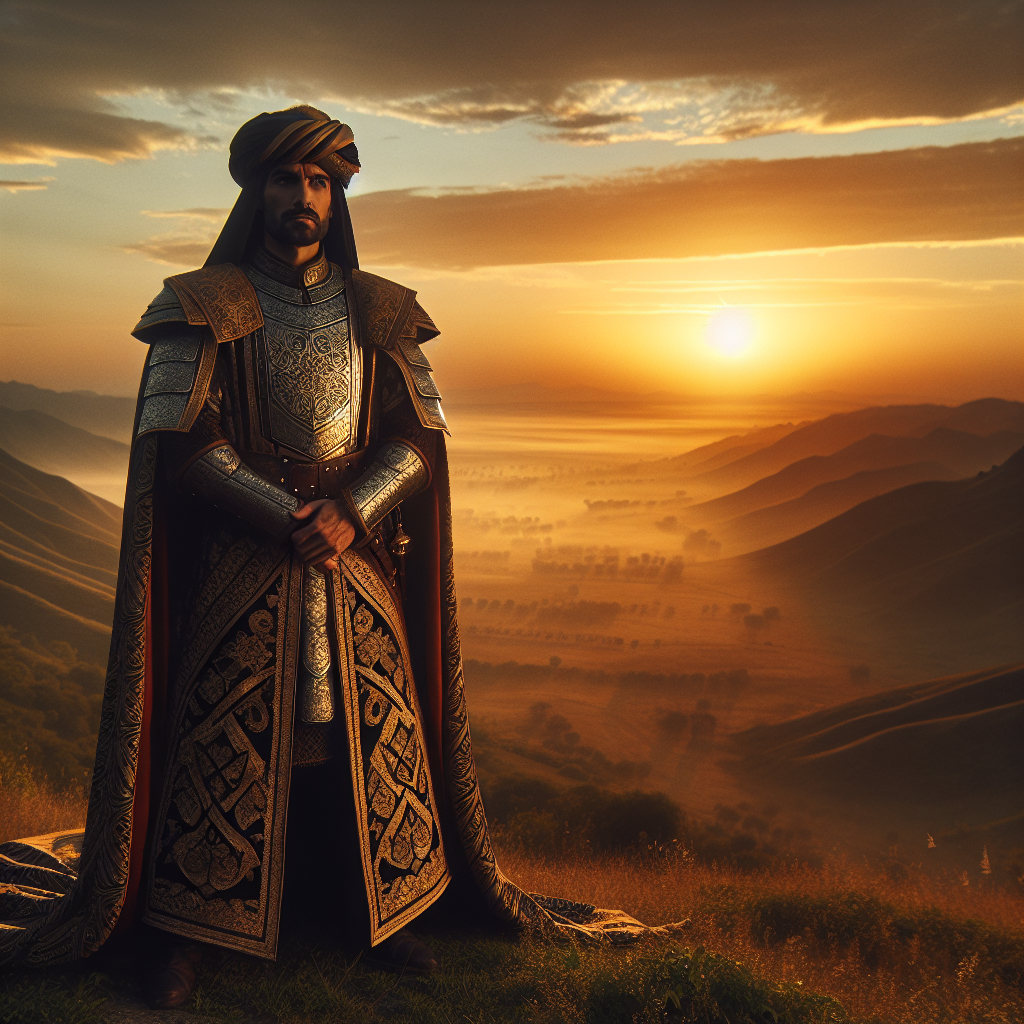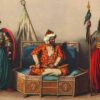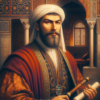In the annals of history, few figures have had as significant an impact on the course of nations as Ertugrul Ghazi. Known primarily as the father of Osman Ghazi, the founder of the Ottoman Empire, Ertugrul’s life and legacy serve as a crucial prelude to one of history’s most powerful empires. For history enthusiasts, understanding Ertugrul’s influence is essential to appreciate the intricate tapestry of events that led to the rise of the Ottomans. This post aims to unravel Ertugrul Ghazi’s contributions and how they laid the foundation for his son’s future successes.
Ertugrul’s Significance in Turkish History
Ertugrul Ghazi holds a distinguished place in Turkish history. His leadership and foresight paved the way for the Ottoman Empire, which would eventually dominate much of southeastern Europe, western Asia, and North Africa. His strategic decisions, particularly choosing to settle his tribe in Söğüt, positioned his descendants advantageously at the crossroads of civilizations. This choice was vital for Osman Ghazi’s later achievements, providing a stable base from which to launch his campaigns.
His legacy is marked by a series of astute political alliances and military strategies that fortified his tribe, the Kayis, against formidable adversaries. Ertugrul’s ability to maneuver through complex geopolitical landscapes was unmatched, ensuring the prosperity and security of his people. His enduring influence can still be felt in Turkey today, where he is revered as a foundational figure in the country’s storied past.
Lasting Influence on the Ottoman Empire’s Foundation
Ertugrul’s legacy is most evident in the formation of the Ottoman state. His conquests and diplomatic successes laid the groundwork for the Ottoman Empire’s emergence. By establishing a strong tribal base, Ertugrul enabled his son, Osman, to gain independence from the Seljuk Sultanate and forge a new path. This transition was not abrupt; it was built on the solid foundations Ertugrul had meticulously crafted over the years, emphasizing loyalty, courage, and justice.
The symbolic importance of Ertugrul’s legacy in Ottoman history cannot be overstated. Later Ottoman rulers frequently referenced him as a paragon of leadership, drawing inspiration from his life and deeds. His principles guided the empire through its formative years and provided a blueprint for governance that was both effective and enduring.
Ertugrul’s Role in the Kayi Tribe
The Kayi Tribe’s Journey from Central Asia to Anatolia
The Kayi tribe, a prominent branch of the Oghuz Turks, embarked on a significant migration from the steppes of Central Asia to Anatolia. This movement was driven by a quest for fertile lands and new opportunities. Ertugrul’s leadership during this migration was instrumental in the tribe’s survival and eventual prosperity. His decision to settle in Söğüt was not merely strategic but also visionary, providing a frontier position against Byzantine forces.
Strengthening the Tribe’s Foothold
Under Ertugrul’s guidance, the Kayi tribe established a secure foothold on the Byzantine frontier. This location allowed them to capitalize on trade routes and foster alliances with the Seljuk Sultanate of Rum. Ertugrul’s ability to balance diplomacy with military might ensured the tribe’s stability and growth, creating a prosperous environment that would nurture future leaders like Osman.
Securing Resources and Defending Territory
Ertugrul’s leadership was characterized by his commitment to securing resources and defending his people’s territory. He implemented policies that promoted agricultural development and trade, ensuring a steady supply of resources. His military acumen was evident in his successful defense strategies, which preserved the tribe’s autonomy against external threats. This combination of economic foresight and military prowess was a hallmark of his tenure as leader.
Ertugrul’s Relationship with the Seljuk Sultanate
Loyalty and Favor with the Seljuks
Ertugrul’s loyalty to the Seljuk Sultanate earned him favor and land, crucial assets for the Kayi tribe’s expansion. By aligning himself with the Seljuks, he gained protection and legitimacy, key elements in the volatile political climate of the time. His service to the Seljuks was marked by mutual benefit; while Ertugrul received resources and land, the Seljuks gained a reliable ally on their western frontier.
Strategic Alliances and Security
His strategic alliances with the Seljuks provided the Kayi tribe with much-needed security. These alliances were not only military but also economic, fostering trade and cultural exchange. Ertugrul’s diplomatic skills ensured that his tribe was seen as a valuable partner, enhancing their standing among neighboring tribes and states.
Positioning Osman for Independence
Ertugrul’s alliances and relationships with the Seljuks positioned his son, Osman, for eventual independence. By securing a stable and prosperous base, Ertugrul set the stage for Osman to assert his leadership and establish the Ottoman Empire. His foresight in building strong foundations ensured that Osman inherited a tribe ready for expansion and capable of challenging the status quo.
Ertugrul’s Military Leadership and Conquests
Achievements on the Byzantine-Seljuk Frontier
Ertugrul’s military leadership was critical in the volatile region of the Byzantine-Seljuk frontier. His achievements here were characterized by decisive victories that expanded Kayi influence. His ability to adapt to changing circumstances and utilize terrain effectively marked him as a formidable military leader.
Guerrilla Warfare Tactics and Raids
Employing guerrilla warfare tactics, Ertugrul was able to defend his territory and expand his influence. His raids were calculated and efficient, allowing for quick strikes against enemies and minimizing losses. This approach not only safeguarded Kayi lands but also instilled fear and respect among his adversaries.
Notable Battles and Strategic Locations
Ertugrul’s legacy includes notable battles and the defense of key strategic locations for the Seljuks. His victories over Byzantine forces demonstrated his tactical brilliance and ability to inspire his troops. By securing vital regions, Ertugrul not only protected his tribe but also contributed to the broader stability of the Seljuk realm.
Ertugrul’s Role as a Statesman
Diplomatic Skills and Peace Treaties
Beyond his military prowess, Ertugrul was a skilled diplomat. His ability to negotiate peace treaties and form alliances with neighboring tribes and Seljuk leaders was pivotal in maintaining stability. His diplomatic efforts ensured that his tribe could thrive without constant conflict, focusing instead on growth and prosperity.
Tribal Unity and Governance
Ertugrul maintained tribal unity through effective governance. His leadership was marked by a strong sense of justice, ensuring that all members of his tribe felt valued and protected. By fostering a community-oriented approach, he ensured the cohesion and loyalty of his people, vital for any leader seeking to build a lasting legacy.
Prosperity and Cohesion
His governance ensured the prosperity and cohesion of his people. Ertugrul’s policies promoted economic growth and cultural development, creating a vibrant and dynamic society. His ability to balance tradition with innovation laid the groundwork for a thriving community that would survive long after his reign.
Ertugrul’s Influence on Osman Ghazi
Mentorship and Leadership Development
Ertugrul played a pivotal role in mentoring Osman, shaping him into a leader capable of founding an empire. His teachings in leadership, warfare, and diplomacy were instrumental in preparing Osman for the challenges of ruling. Through example and instruction, Ertugrul imparted the wisdom and skills necessary for effective leadership.
Values of Loyalty, Courage, and Justice
The values of loyalty, courage, and justice that Ertugrul instilled in Osman became defining characteristics of early Ottoman leadership. These principles guided Osman’s decisions and actions, helping him to build a strong and resilient empire. Ertugrul’s emphasis on ethical leadership created a legacy of integrity and honor that persisted throughout Ottoman history.
Influence of Halime Hatun
The role of Osman’s mother, Halime Hatun, in influencing both Ertugrul and Osman’s leadership styles cannot be overlooked. Her guidance and support provided a foundation of stability and love, nurturing the development of both father and son. Her influence was a significant factor in shaping the compassionate and just leadership for which both were known.
The Spiritual and Religious Legacy of Ertugrul
Devotion to Islam and Religious Leaders
Ertugrul’s devotion to Islam was reflected in his close relationships with religious leaders, including Sheikh Edebali. His faith informed his leadership style, integrating Islamic principles into governance and decision-making. This spiritual foundation was a source of strength and guidance, influencing the moral compass of his reign.
Integration of Islamic Principles
The integration of Islamic principles in governance was a hallmark of Ertugrul’s leadership. These principles provided a moral and ethical framework that guided his decisions and actions. By passing these values on to Osman, Ertugrul ensured that the Ottoman Empire would be built on a foundation of justice and righteousness.
Moral and Ethical Framework
Ertugrul’s religious devotion influenced the formation of a moral and ethical framework in the early Ottoman Empire. His commitment to fairness and integrity set a standard for future leaders, ensuring that the empire remained grounded in ethical governance. This legacy of moral leadership contributed to the empire’s longevity and success.
The Legacy of Ertugrul
Foundations for the Ottoman Empire’s Rise
Ertugrul’s conquests and diplomatic successes set the foundation for the rise of the Ottoman state under Osman. His strategic foresight and leadership created the conditions necessary for the empire’s emergence as a dominant force in the region. His legacy was not only one of military success but also of visionary leadership.
Establishing Independence from Seljuk Control
His role in establishing a strong tribal base allowed Osman to break free from Seljuk control and establish an independent empire. This transition was possible due to the stability and resources Ertugrul had secured during his lifetime. His legacy was one of empowerment and self-determination, inspiring future generations of Ottoman leaders.
Symbolic Importance in Ottoman History
The symbolic importance of Ertugrul’s legacy in Ottoman history is profound. He is celebrated as a model of leadership and integrity, embodying the values that would define the empire. His life and achievements continue to inspire admiration and respect, serving as a beacon of excellence for those who follow in his footsteps.
Cultural Impact of Ertugrul Ghazi
Place in Turkish and Ottoman Folklore
Ertugrul’s place in Turkish and Ottoman folklore is secure, with his story immortalized in legends, literature, and modern media. His tale is one of bravery and perseverance, capturing the imagination of generations. This cultural legacy ensures that his contributions are remembered and celebrated throughout Turkish history.
Values of Bravery, Perseverance, and Justice
The cultural values of bravery, perseverance, and justice that Ertugrul represents resonate deeply with the Turkish people. His life and achievements embody these ideals, serving as a source of inspiration and pride. These values continue to shape Turkish identity and cultural heritage, reinforcing his enduring legacy.
Ongoing Reverence for Ertugrul’s Legacy
The ongoing reverence for Ertugrul’s legacy is evident in sites such as his tomb in Söğüt, which remain pilgrimage spots for modern Turks. His contributions are celebrated annually, with ceremonies and events honoring his life and achievements. This enduring respect is a testament to the profound impact he had on Turkish history and culture.
Conclusion
In conclusion, Ertugrul Ghazi’s legacy as a warrior, statesman, and father to Osman Ghazi is both vast and enduring. His leadership and influence laid the groundwork for the Ottoman Empire’s rise, shaping the course of history for centuries to come. The values and principles he embodied continue to resonate, offering lessons in leadership and integrity for future generations. Ertugrul Ghazi remains a symbol of excellence and inspiration, his legacy a guiding light in the annals of history.
Read More :: Read More Osman Ghazi Blog.
Osman’s Dream: The History of the Ottoman Empire
A books on Osman Ghazi, the Ottoman Empire, and related historical themes available on Amazon that may interest you:
Author: Caroline Finkel
Link: Osman’s Dream











